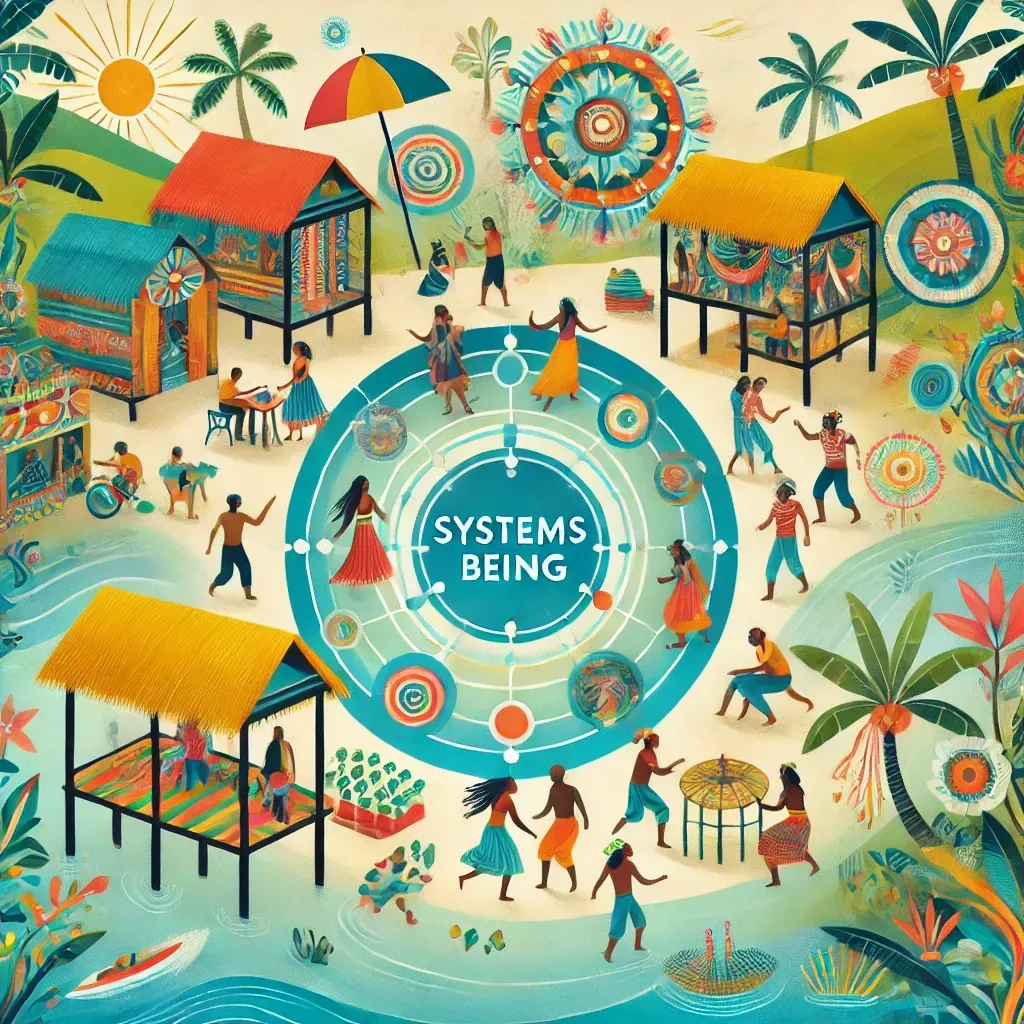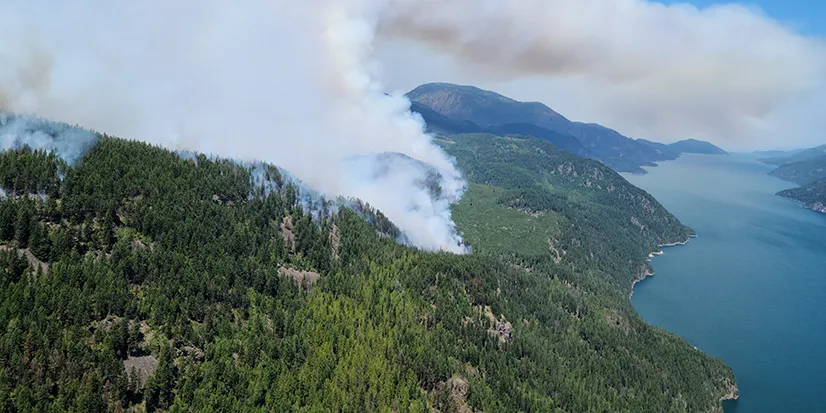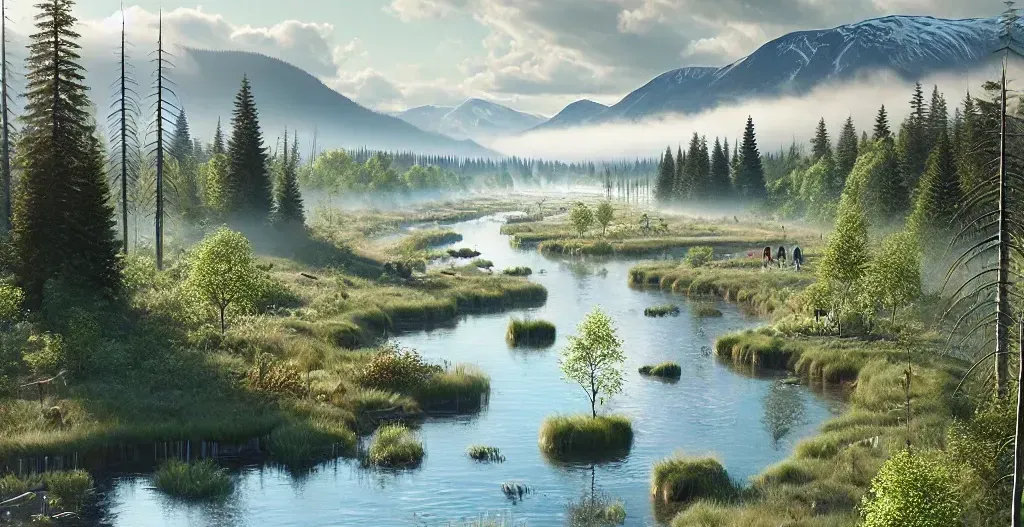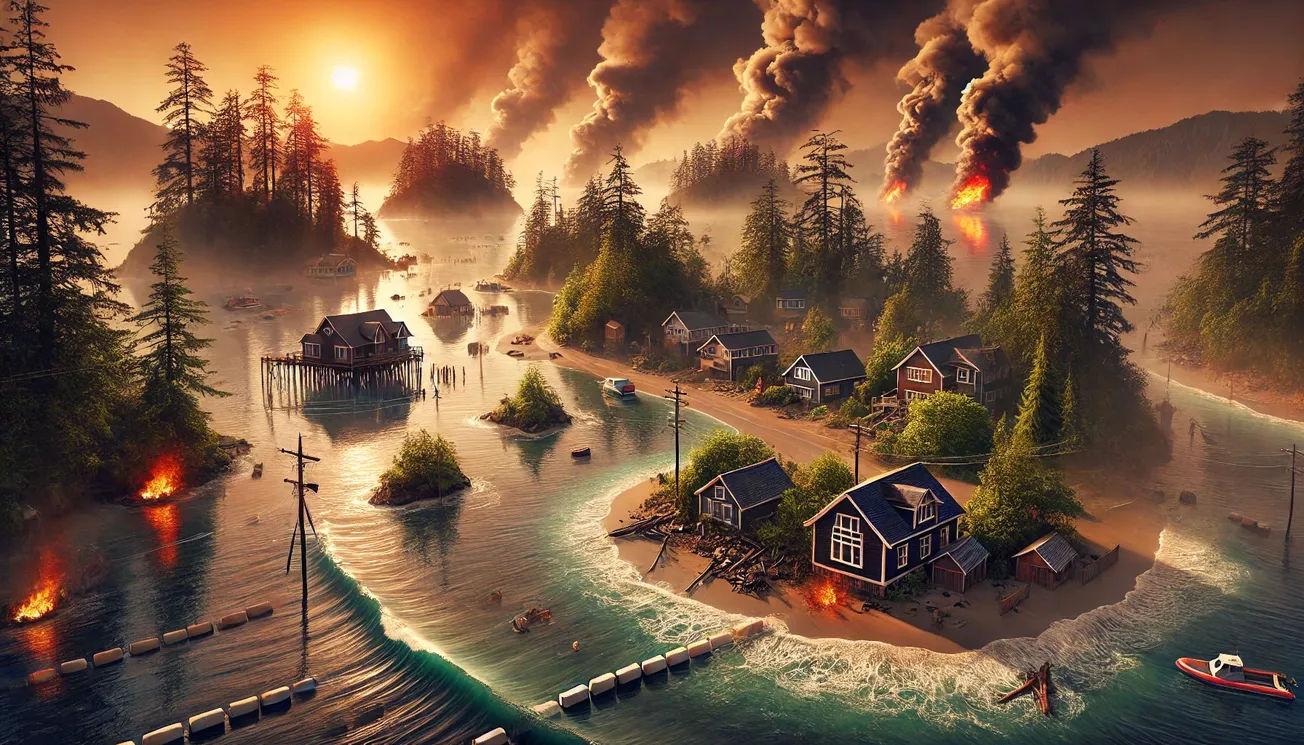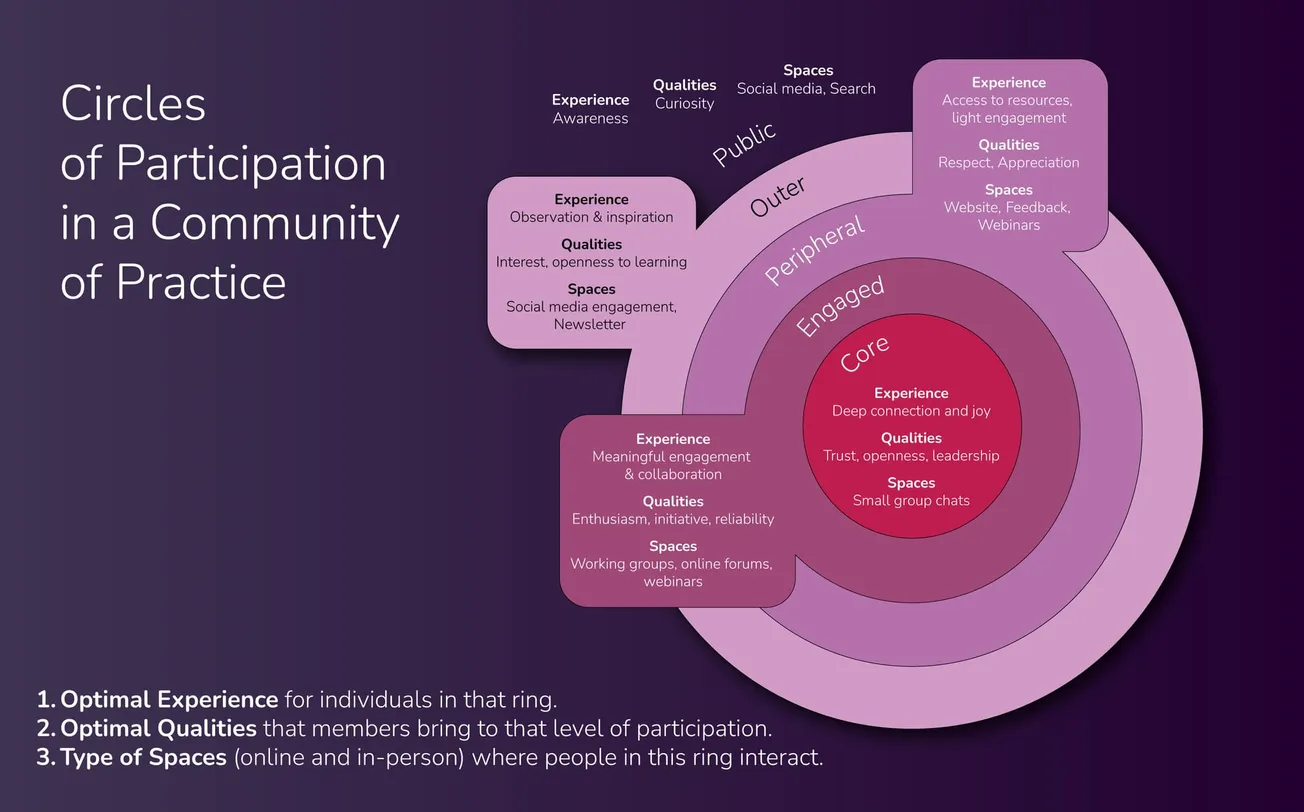Table of Contents
I’m from Guyana, South America. But over the years, I’ve lived in Canada, the States, and—briefly—China. Each place has shaped my perspective, though my journey toward understanding adaptation has been anything but linear.
Growing up, my understanding of adaptation centered on climate change goals. I knew climate change posed an existential threat to all life on Earth, but as a high school student and even as an undergrad, I didn't feel an urgent pull to action.
At heart, I was still a social scientist—an IR (International Relations) major with a drive to make meaningful “social” change. It wasn’t until one of my professors connected climate change to social inequities that my perspective shifted.
Suddenly, I could see how environmental challenges and social injustices weren’t just overlapping—they were deeply intertwined. This realization reshaped my thinking and ultimately led me to pursue a master’s program professing to bridge social and environmental concerns.
But my excitement soon gave way to uncertainty. As a humanities student, I often felt like an outsider in a sea of silos. To me, the need for strong communities and social systems in facing climate change seemed obvious. Yet, these connections were often lost or undervalued in my program’s more technical approaches.
I began to question my place there. Did I need to suppress my feelings on community in order to fit in? Was my perspective even valued as a young Caribbean researcher?
It wasn’t until I began working as a teaching assistant for an undergraduate course on sustainability in food systems that I started to find my footing. That course—along with conversations with professors from various education faculties and the head of a humanitarian organization—helped me crystallize my research topic.
Even before I began my fieldwork back home in Guyana, I started to realize something bigger: my interest in education wasn’t new. It had always been there, quietly shaping my passion for social change. Education, I came to believe, could be a powerful tool for helping communities adapt to what some now call the polycrisis, a term highlighting the interconnected crises of our time.
If adaptation extends “beyond climate change” to include systems change of every kind, then communities will need support to transition. I began thinking about my own role in this shift as helping to equip communities with the tools they would need to navigate complex challenges.
Education—either formal or informal—seemed to me a natural pathway for doing so, though not the only one. Through volunteering with a startup, I saw how technologies that foster collaboration and connection also have the power to support communities in transformative ways.
This exploration led me to the concept of depth education. Depth education invites us to move beyond intellectual “knowing” rooted in Western-scientific traditions and make space for relational and emotional understandings.
At first, this idea felt abstract. What does “relational knowledge” really mean? I began to see that knowledge isn't created in a vacuum. Instead, all knowledge is relational; it is shaped by our belief systems and the worldviews we inhabit.
In addition, learning can operate on two planes: a horizontal one, where we learn new facts or skills, and a vertical one, where we challenge assumptions and reshape our understanding more holistically (Training Industry Magazine, 2017).
This process isn’t just intellectual; it’s deeply emotional. After all, our worldviews are bound to our identities, cultural stories, and the ways we make sense of the world. Letting go of an old belief can feel like losing a part of yourself.
Yet, in many ways, our current worldviews are part of the crises we face today. Even the language we use influences how we think and act. Take education, for instance. The shift from teacher-centered models to student-centered facilitation represents more than a methodological change.
Traditionally, teachers were positioned as the “sole experts” with all the right answers. Facilitation, on the other hand, encourages students and teachers to challenge assumptions together. It asks us to reflect on where our beliefs come from and how they shape our actions.
This reflective process is crucial because, to adapt effectively, we need to ask new questions—ones that open up fresh ways of viewing and responding to challenges.
In addition, adapting isn’t just about understanding systems intellectually—it’s about living within them. It requires a move from systems thinking to systems being: a holistic approach that acknowledges the interconnections between all living things.
Systems being integrates emotional, relational, and intellectual ways of knowing, fostering deeper connections to each other and to the natural world. The Three Horizons framework helped me see this more clearly.
It also brought me back to the isolation I felt early in my master’s program. At the time, conversations about diversity often felt superficial—reduced to virtue signaling instead of genuine engagement.
This disconnect, I realized, reflected a deeper need for frameworks that can connect diverse perspectives meaningfully. Before encountering the Three Horizons framework, I struggled to envision how different viewpoints could work together. We were a sea of unconnected dots—disjointed and without a shared reference point.
(As another example, there is plenty of academic chatter about transdisciplinary collaboration, yet no concrete examples of what it looks like in practice.)
One promising way forward is the concept of collective intelligence, which we’ve begun exploring at CanAdapt. It advocates for “multiple” ways of knowing. As the Indigenous concept of two-eyed seeing reminds us, no single perspective can guide us through today’s complexities. Instead, we must embrace intellectual humility and work collaboratively across diverse worldviews.
But to do this, we need intellectual humility. For too long, dominant perspectives have silenced marginalized voices, leaving us with a fractured understanding of the challenges we face.
Worse still, this marginalization often erases these voices before they are even heard—a devastating loss to our collective resilience, let alone our sense of community.
True adaptation requires more than intellectual gymnastics. It calls for reaching beyond ourselves, embracing discomfort, and reshaping our systems to include diverse knowledges and perspectives.
For many in the Western world, this shift will feel unsettling. Shedding our beliefs is necessarily emotional. This will require emotional work for me too, as I confront my own assumptions and strive to unlearn what no longer serves us.
I’ve begun to reflect on how diverse concepts, stories, and even language can help generate new models of understanding. (After all, and as one language activist told me, we were never meant to be monolingual.)
Looking back, I could have left my master’s program feeling disillusioned. Instead, I encountered people and ideas that challenged me to grow. This, to me, is the essence of adaptation—not just intellectual shifts, but holistic transformation.
It’s about systems being: deeply feeling the interconnections that bind us to all living things. As for my own role, I will continue to champion interconnected communities, whether through education or social technology.
The path forward is not one we walk alone. Instead, it is a path we walk together, in relationship with each other and all living things. Adaptation, to me, is not just about survival; it’s about reimagining how we live, learn, and thrive as one interconnected whole.
References:
Training Industry Magazine. (2017). Disrupting Best Practices in L&D: Differentiating Horizontal & Vertical Development. Retrieved from https://trainingindustry.com/magazine/may-june-2017/disrupting-best-practices-in-ld-differentiating-horizontal-vertical-development/

